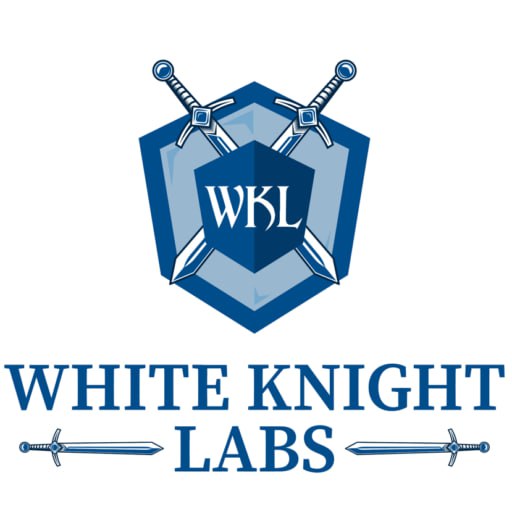The line between writing for search engines and writing for people is blurring with every passing year.
This isn’t some new, exciting idea by any stretch of the imagination, either. It’s simply what platforms like Google have been pushing toward since the early days of Web 2.0.
However, as we in digital have seen with the most recent algorithmic updates, the efforts that go into penning high-value content are finally starting to pay off.
Higher-quality, long-form content has become the dominant form of digital content writing from the perspective of search engines, and with it, a shift in the modern content marketing paradigm has begun, especially for those who were still relying on the black hat, ‘spammy’ tactics of eras past.
While it’s easy to look at the biggest changes as being the recommended word count alongside structural evolutions, there’s one big shift that has proven to be the most ephemeral and difficult to pin down, and that is uniqueness. Unlike other factors that can be overcome by simply putting more time into the same old templates, unique content is much harder to spin.
It particularly becomes challenging when you are trying to craft the same content to meet your organization’s strategies. Of which, the former would typically be more sales-focused while the latter would speak more to your brand values. It is both a blessing and a curse depending on where you are in the digital marketing pipeline.
So, what is unique content, and how does it impact the modern content marketing landscape?
What Makes Content Unique?
If you want to look at a question like this semantically, unique content is simply content that is new, original and has not been duplicated or derived from another piece of content. It can be used for customer acquisition or customer retention but will be unique to that anything else on the internet.
This seems to make sense, but this interpretation begs one important question. Given that duplicate content has always come with a penalization risk for websites, how is the new paradigm any different from the last? In truth, unique content means more than just different words. It also means different ideas.
For years, people have been writing in the same tone from the same perspective about the same “top ten tips” or “exciting new updates” to the point that terms like “tips” and “ways” have essentially lost all meaning. The internet is flooded with literally millions of articles all following these same tried and true formats due to unscrupulous content marketers simply spinning articles for the sake of an article existing.
Not only is this unhelpful in the sense that you’re getting redundant or surface-level information again and again, but it’s also making it harder to trust what you read online. From medicine to law to practically any other industry you can think of, the majority of articles are going to be by people who were never incentivized to understand the subjects they were discussing. This is where the need for unique content comes into play.
Talking About Tone
Google, as with other search engines each with its own algorithmic ways of ranking pages, has one goal with its service: to provide the most relevant pages possible for any given user query. Naturally, due to the above-mentioned issues, discussing a topic can no longer be the only relevant factor in determining whether something is going to be helpful to a user, so what else can you look for?
In this particular case, to misuse an old cliche, to walk the walk, you need to talk the talk. Every topic that requires any level of authority or specialty is going to come with certain terminology or with its own vocabulary.
If you want your content to be picked up by search engines, learning how to communicate with authority in that particular niche is something you will need to learn, and that naturally takes time. Talking about complex subjects in very vague or generalized ways will no longer be enough; you need to show the algorithm that you are an authority on the subject, and that you have the knowledge to back it up.
Not Just Good Information, New Information
Outside of its perceived SEO benefits, what is there to be gained by writing the same top 5 lists or guides that hundreds of other people have written before you? Taking inspiration and doing research is one thing, but even as far back as 2019, repetitive or redundant content was being targeted and delegitimized as a valid form of content marketing, and that’s a good thing.
While it may make things harder for those who are trying to provide quantity over quality for their clients, it allows those with a unique perspective on their industry to properly make names for themselves and rise above the proverbial noise.
If you have a unique perspective, as well as the authority and authenticity to back up your claims, then you are the type of specialist that Google will want to showcase in their search results. Google’s page 1 is no longer a realm exclusive to those who can pump out the most links or the most on-site content. Instead, that power is slowly shifting to those that have the most consistent credibility and insight.
With that said, whilst things may change, others may likely stay the same…
Quality Is, As It Ever Was, The Key to Success
One of the major stumbling blocks for many business owners and specialists is the fact that the ability to write in an engaging and clear way is a skill on its own. While you may have all the knowledge in the world on a particular subject, articles can suffer if they’re not written in a way that clearly provides that information to an audience.
However, whilst this may be a stumbling block for website owners who are looking to bring their authority to the world, it’s by no means an insurmountable issue.
Experts with industry knowledge simply need to work with writers to provide high-quality content that has the winning combination of being both authoritative and authentic. As with most aspects of life, collaboration is the key to success, and just because the modern content marketing landscape is different from how it was in years past, those skills and methodologies are by no means redundant within this new landscape.
Combining traditional content marketing tactics with the authority of those experienced in their field is the perfect pairing and one that is almost certain to lead to success with the right amount of effort and diligence.
Conclusion
It has been a difficult time for a lot of website owners who have experienced significant changes with the results of their previous content marketing efforts. However, all is not lost, and these changes make room for the efforts of true specialists and industry leaders to be rewarded with visibility.
So, work within your niche, and don’t be afraid to show your expertise in your content! It may feel complicated at first, but for those who are willing to put in the time, it will most certainly be sure to pay off too.




